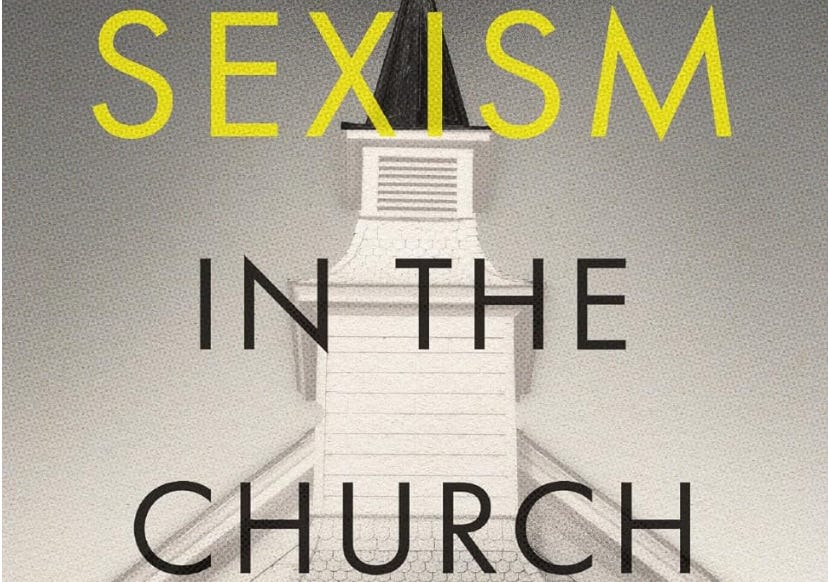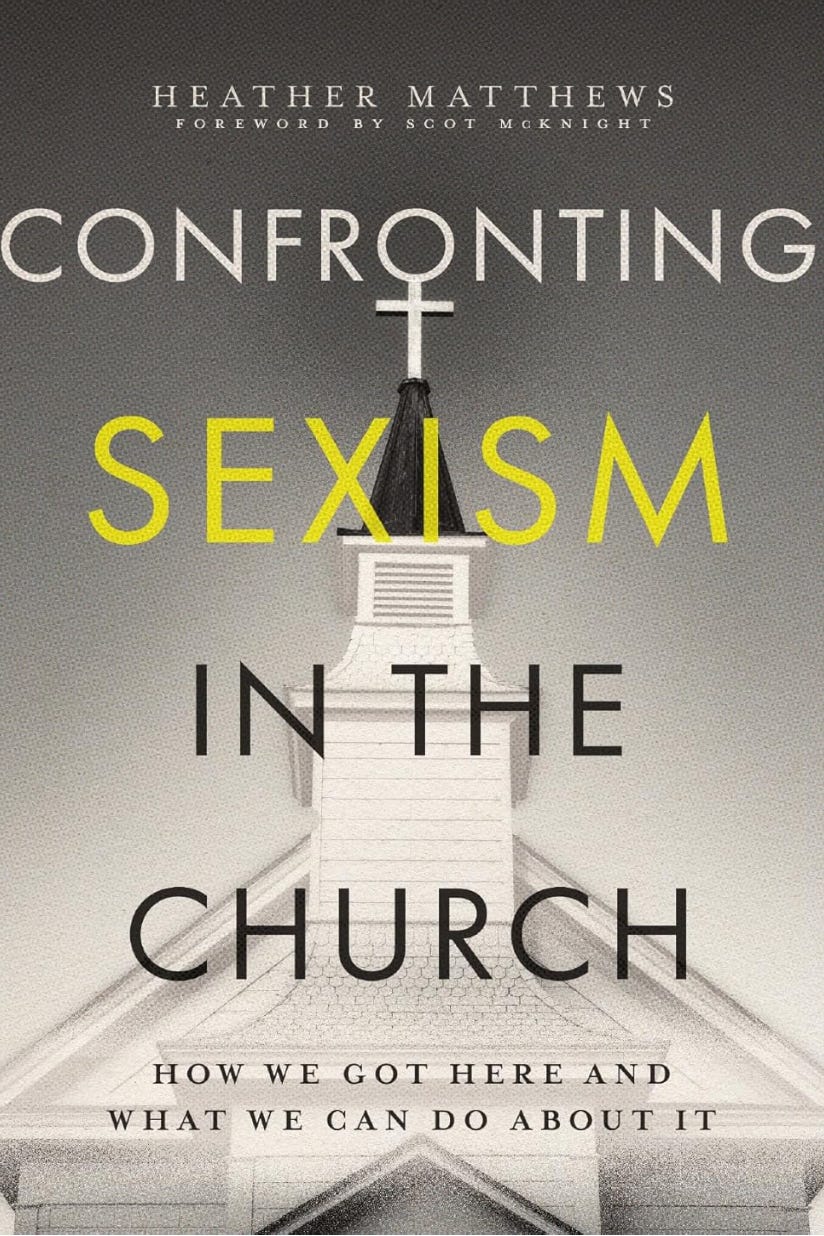This is my foreword to Heather Matthews’ new book, Confronting Sexism in the Church, which just landed on my doorstep and will be available for purchase soon.
Over the last decade of teaching seminary students, a group in my favorite class gave themselves the name “the Gertie Girls.” Somehow, in the chat rooms to which I did not have access, a troll on the top of a hill at the Morton Arboretum and an attempted explanation by the professor of “gird up your loins” coalesced into a name for the group. They were and still are a wonderful group of Christian women leaders, pastors, moms, wives, writers, therapists, and all sorts of other vocations and avocations.
But what perhaps was most important was what I learned from them. Women were the majority in the class, and what I learned, time and time again were their sensitivities toward what was written about women (and men) in the Bible, what was written in the textbooks as well as who wrote those textbooks, what was said by peers in the classroom, and what I said when lecturing or responding.
The Gertie Girls reminded us all that sexism is alive and well. That sexism needs to be noted, named, and nixed. Had the class been a majority of White, privileged males, comments like “A man would say that” may not have been heard and especially its impact and implications not heeded. For the church to eradicate sexism — the systemics of sexism, and even vestiges of sexism — will require vigilance. And it will need to discover more and more rooms of majority women where men will struggle to power up and assert the majority’s voice, and so learn the art of other voices.
We need to approach sexism from a variety of angles, including books like Heather Matthews’s excellent Confronting Sexism in the Church. (By the way, Heather was not one of the Gertie Girls, but they would love one another!) It’s a handbook for discovering and dismantling sexism in the church and in Christian institutions. Heather speaks, as did the Gertie Girls, from her own experiences of sexism in the church. Heather’s book does not back down: it brings to the table most every topic, it dismantles the topics (definitions of all the major terms, problems with power, relationships, the damage to women, etc.), and it opens up possibilities for demolishing sexism in particular locations.
What I have learned about sexism is that it lurks in systems and emerges in the most uncomfortable of situations. Professors and pastors are inescapably didactic, and at times we – I’ve had this pointed out – “mansplain” to women far more often and far more patronizingly to women than we ever would to men. We need this pointed out as it can’t be learned reading a paragraph in a book about mansplaining. We assign book written by males but more importantly male authors and professors and figures have shaped our minds more than women.
A denominational leader asked me to read a set of policies and procedures, inviting me to examine the document to see if it was sufficiently sensitive to survivors. I was honored to be known for being able to help. But when I suggested it be given to a couple female abuse victims to see if they could detect insensitivities, the leader was a bit surprised with himself that he had not thought of.
Recently I read Voices Long Silenced by Joy Schroeder and Marion Ann Taylor, an encyclopedic book about women Bible interpreters — most of I whom I had both never heard of nor had ever read. Page after page I was stunned into lament. In pondering how to frame my public response to theirs, I was tempted by two extremes. One was to stand there and “say their names” by reading aloud the hundreds of names of women whose contributions were sketched by the authors. The other was to stand there for ten minutes and say nothing, silencing my voice to echo the silenced voices of these women. Who will tell such stories if not women?
Women perceive these things because many are themselves victims of abuse and silence and sabotage. Women experience moments in the system differently. Women can point out what men who formed the system find invisible. Among those women now is Heather Matthews.






Scot, once again I find myself so grateful for your voice and your willingness to hear our voices. Thank you seems insufficient but I say it again anyway. Thank you.
Andrea
Grateful for your posture and voice, Scot.